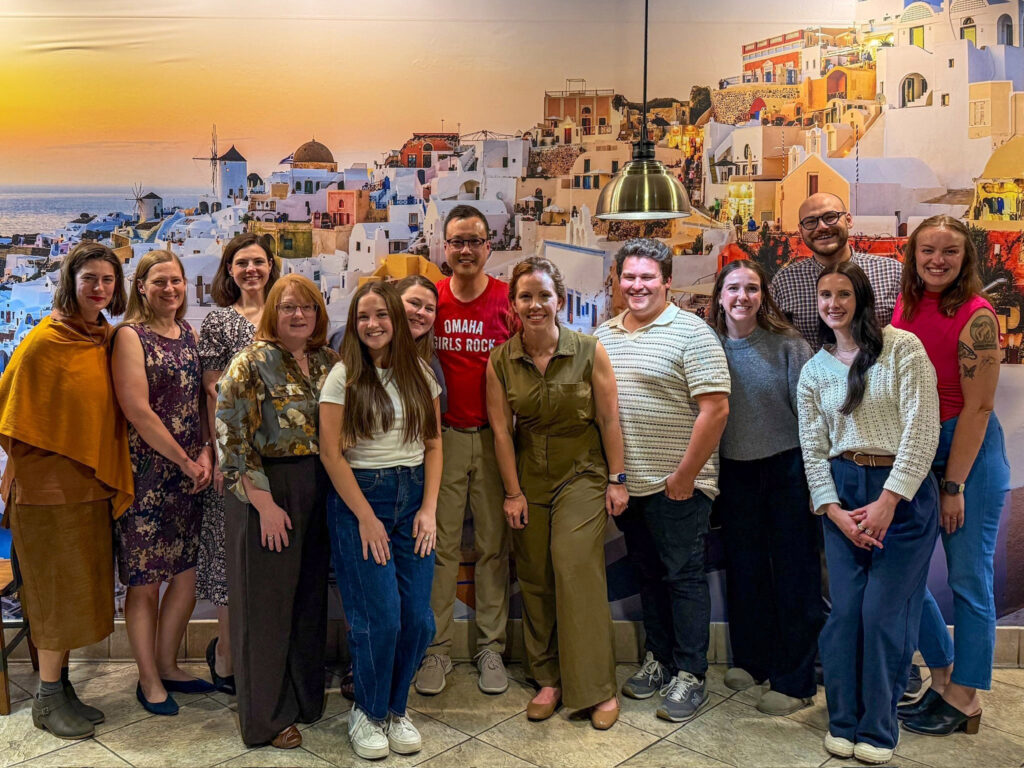
A large contingent of UNMC Department of Psychiatry members and trainees took over the Association of Academic Psychiatry (AAP) conference last month in Milwaukee. Faculty, staff, residents, and students discussed essential issues in residency training and medical education.
The AAP focuses on education in psychiatry at every level, from the beginning of medical school through lifelong learning for psychiatrists and other physicians. The conference, held from September 10-13, aims to support psychiatrists interested in academic psychiatry careers in developing the skills and knowledge necessary for teaching, research, and career advancement.
Jeana Benton, MD, Associate Residency Program Director, was the lead presenter on a conference session titled “A Trainee is Missing! Who You Gonna Call?” Daniel Gih, MD, Vice Chair for Education, was also a co-presenter.
“When discussing this issue with colleagues, we found that, although unexpected absences will happen in every training program, what to do in these situations is often unclear and varies widely among institutions,” Dr. Benton said. “We developed this workshop to promote discussion and to help identify best practices in these situations.”
Dana Raml, MD, Director of Undergraduate Medical Education in the Department of Psychiatry, was lead presenter on a session titled, “Residency Prep Course Implementation: Adapting to the Transition from Medical Student to Resident.”Department of Psychiatry Associate Residency Program Director Riley Machal, MD, was a co-presenter of the session. Dr. Raml said that prep courses have become popular over the past decade as medical schools seek ways to make the transition less stressful.
“The transition can be really rough on students,” Dr. Raml said. “We are asking what directors can do to help students ease into their new roles. These courses can help.”
Kaz Nelson, MD; Melissa O’Dell, MD; fourth-year medical student Marie Bernard; residency program coordinator Ellie Corbaley; Jake Givens, MD; Charlotte Ritchie, MD; and fourth-year medical student Danielle Krohn also presented at the AAP conference.
Dr. Raml said the department sends a wide array of faculty, staff, and trainees to AAP because the conference has something for everyone.
“It’s not specific to faculty development or residency programming or med school psychiatric training,” she said. “And so, because of that, it really is broader. It can help make different connections between some of these groups that often can be siloed.”
Dr. Benton said the conference offers hands-on workshops tailored for different levels of expertise and provides opportunities for educational leaders to brainstorm.
“Connections made at the meeting often lead to further projects and invitations to speak, which can help to build regional and national reputations needed for promotion,” Dr. Benton said. “(UNMC Department of Psychiatry) having a large presence at a national meeting also demonstrates the department’s commitment to academic excellence and can be helpful for recruitment and retention of faculty interested in academia.”